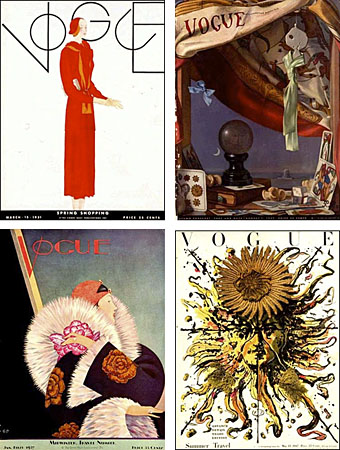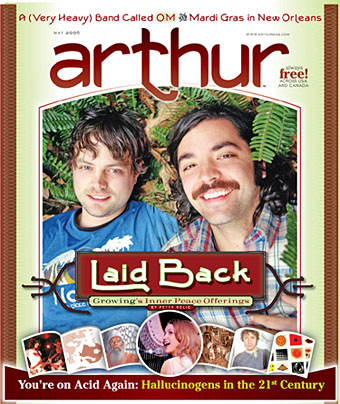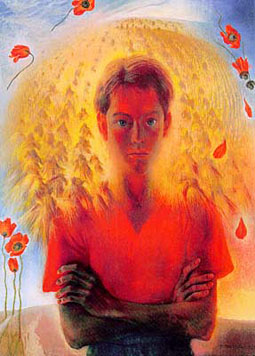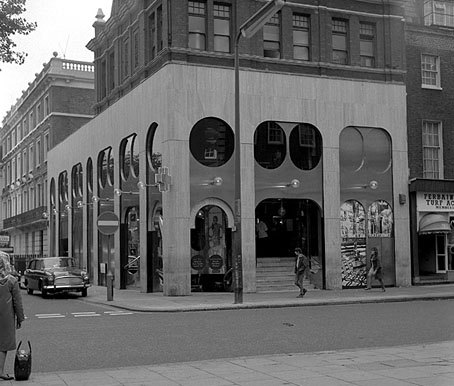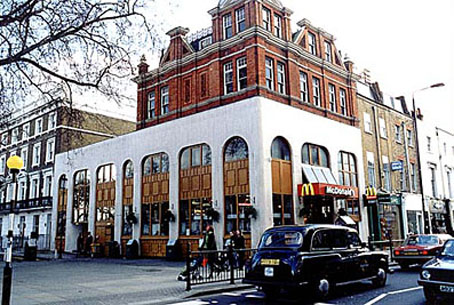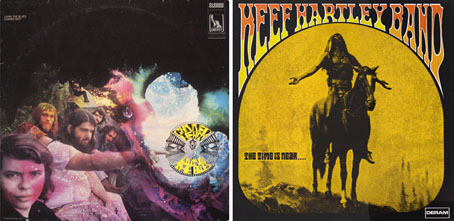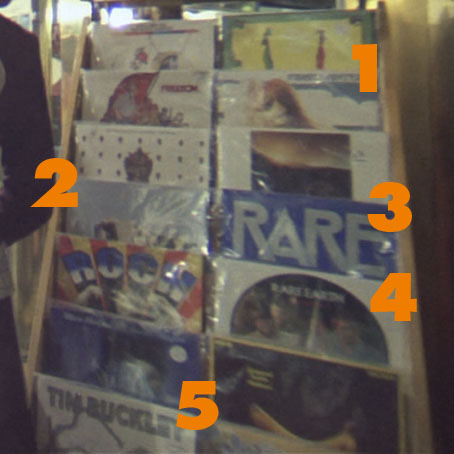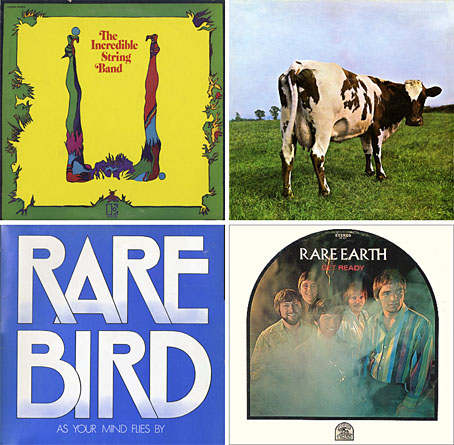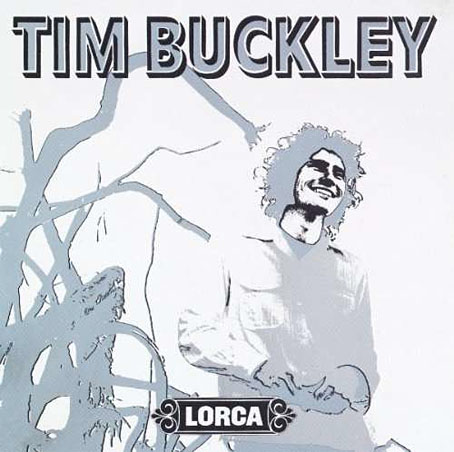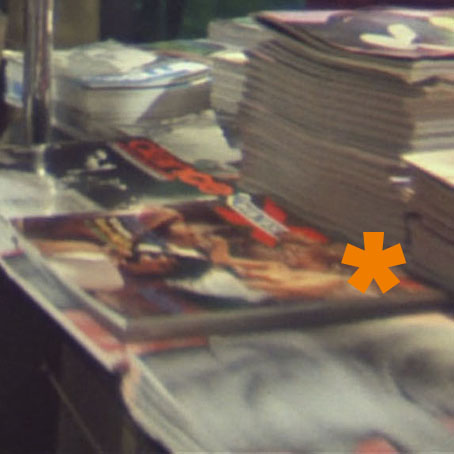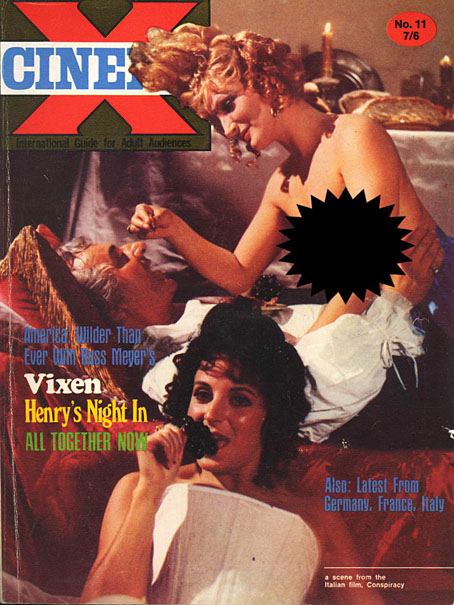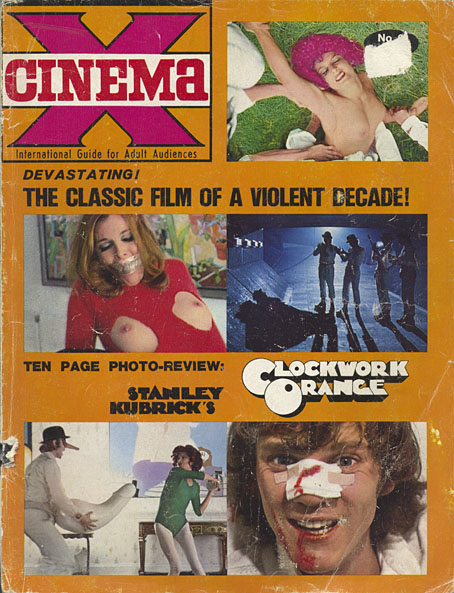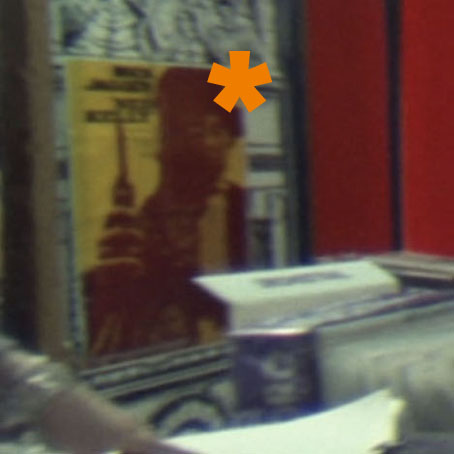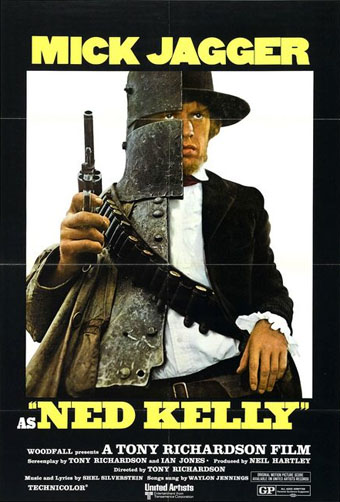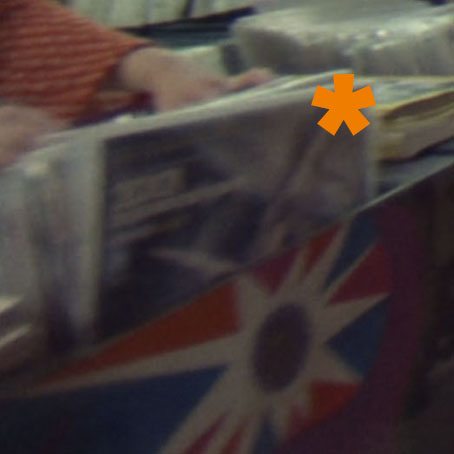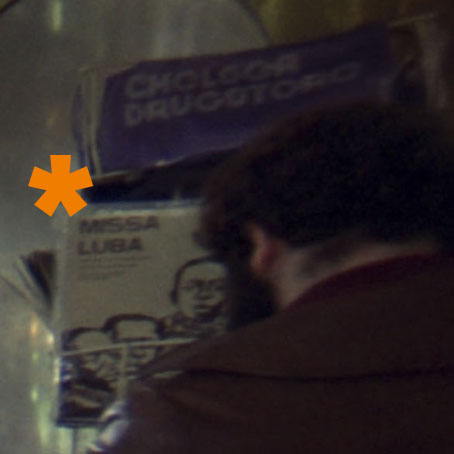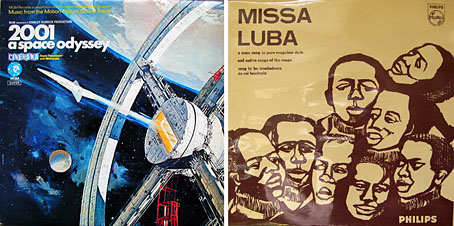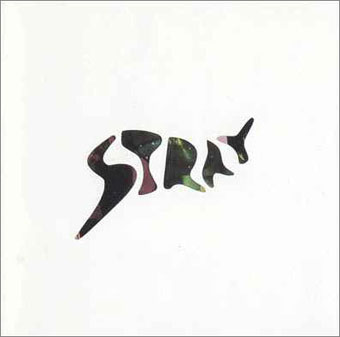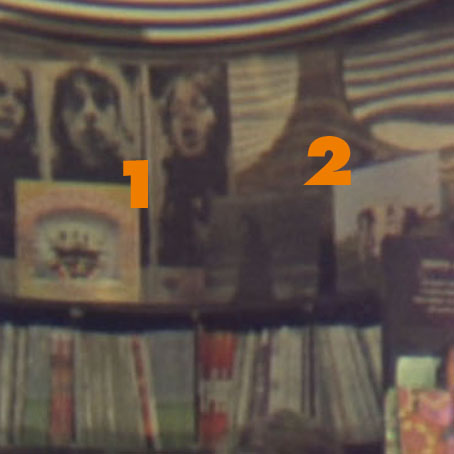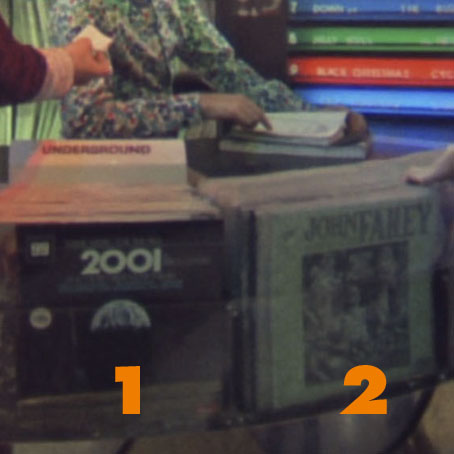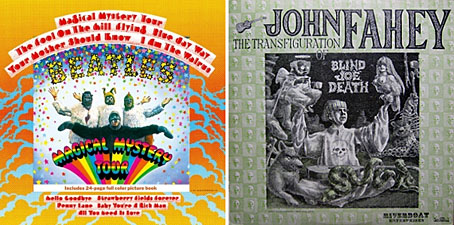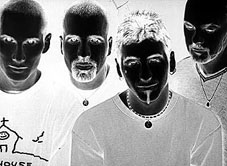
Boston band Godsmack are a bigger deal in America than here, their latest album having gone to no. 1 in the Billboard charts this week. The band like to play concerts for the US military and have allowed their songs to be used in recruitment ads in the past but seemed to get rather flustered when questioned about these activities as Arthur Magazine‘s Jay Babcock discovered below. A wickedly hilarious interview and one with a point; the band’s reaction shows how little their military support must be questioned by the mainstream music press, a situation one can read as paralleling the craven behaviour of the mainstream media in recent years towards the activities of the current US government. Guys, if you’re going to assist the work of warmongers, at least have some answers ready when people come asking questions.
Godsmack are a Boston hard rock band who have sold millions of records in the last 8 years. Their fourth album, ‘IV,’ was released on April 25. It sold 211,000 copies in its first week in the USA to debut at Number One on the Billboard chart. I interviewed Godsmack frontman/lyricist/producer Sully Erna on Monday, May 1 by telephone. Here is the full transcript of our conversation. – Jay Babcock (Editor, ARTHUR Magazine).
JAY BABCOCK of Arthur Magazine: Alright let me get the tape rolling here. How you doing?
SULLY ERNA of Godsmack: I’m good!
JAY: How was the Jimmy Kimmel show on Friday? You were outside playing, right?
SULLY: Yeah it’s always cool to do that because it’s so set up for musicians, you know. Big stage, live crowd. It’s not so like indoors with a camera rehearsals. It’s a lot easier.
JAY: Yeah. So you got to be back out in front of your fans.
SULLY: Yeah. It was good. It was fun.
JAY: What kind of people listen to your music, do you think?
SULLY: Ummm, I’ve seen ‘em range as young as 8 and as old as 68. [chuckles]
JAY: Yup.
SULLY: So it’s…
JAY: Well, you’ve seen a lot more of ‘em than I have, and I’m trying to get an idea of what it feels like when you’re out there–to you, on the stage. Do you think there’s a lot of teenagers in the audience? A lot of guys in their 20s? Chicks?
SULLY: Ah you know…
JAY: Is it a dude audience?
SULLY: I would say, if I had to guess what our age group is, it’s probably between 18 and 40.
JAY: Oh yeah?
SULLY: I would have to say that’s kind of where we’re at, maybe more, majority would be 18-30? But I, we definitely, we recruited a lot of new fans off of that acoustic record…
JAY: That did it, huh?
SULLY: …an older audience. And this record seems to be drawing in a different kind of audience as well, so. You know we’re just trying to continue to expand and not have a ceiling over our heads.
JAY: Right. You guys are still having a good time making music after all these years?
SULLY: Of course. We’re musicians, that’s what we do. It may not always be great music, but we love making it! [laughs]
JAY: Cuz music has a power…?
SULLY: Mmm hmm. It’s a universal language.
JAY: So what you say with it, and what you do with it, has an effect…?
SULLY: Of course.
JAY: Right?
SULLY: [emphatically] Of course.
JAY: So I notice you guys have been really involved with promoting the military. [1]
SULLY: Well, they actually came to us, believe it or not. Somebody in the Navy loves this band, because they used “Awake” for three years and then they came to us and re-upped the contract for another three years for “Sick of Life.” So, I don’t know. They just feel like that music, [laughs] someone in that place thinks that the music is very motivating for recruit commercials I guess. And hey, I’m an American boy so it’s not… I’m proud of it.
JAY: You’re proud of recruiting your fans into the military?
SULLY: Well, no. [laughs, then playfully] Don’t be turning my fucking words around, you!
JAY: Well, tell me what you mean. You said your music is powerful, it’s got an effect, like you said, and you’re letting the military use it. The military, who are they recruiting? 18-to-30-year-olds, right?
SULLY: I guess. I don’t know what their recruit age is. I know it’s at least 18.
JAY: Yeah, they do down in the high schools now.
SULLY: My thing is… Listen, here’s my thing with the military. I’m not saying our government is perfect. Because I know that we make some mistakes and we do shitty things BUT, BUT. You wouldn’t have your job, and we wouldn’t have our lives, if we weren’t out there protecting this country so we could lead a free life. So there’s kind of a ying and a yang to that. Sometimes it’s not always the best choices that we make, or we stick our noses in other people’s shit, but at the same time, we protect this place enough that we’re able to like pursue careers and do what a lot of people in other countries aren’t able to do. They’re kind of picked and they’re chosen to be whatever they become… I’m proud to be an American, I’ll tell you that.
JAY: So your country, right or wrong?
SULLY: Uh, no. Not right or wrong. But I’m proud to be an American. I love my country. I’ve seen the depressions and how people live in other countries and how they’re told what to be, and they don’t have the choices that we have. I do love that about our country. So, you know… And I actually sympathize with a lot of the soliders, and the military in general, that are trained to go out and protect FOR us, and what they have to go through, it’s really kind of shitty in a sense that these young kids have to go over there and die, sometimes, for something that isn’t our fucking problem. And that kind of sucks. So what I have to do is at least support them, because they don’t have the choice that we do.
JAY: They don’t have the choice because…?
SULLY: Because they’ve decided to fight for our country.
JAY: And they decided to do that because…?
SULLY: [laughs]…
JAY: Of your song…?
SULLY: Aw, come on. It’s not like that.
JAY: Well I have a quote from you here: “We’ve always been supportive of our country and our president, whereas a lot of people I thought” — and you said this in 2003, to MTV News, you said — “a lot of people I thought lashed out pretty quickly at what we did and I thought the government did everything pretty cleanly and publicly as possible.” [2]
SULLY: Yeah…
JAY: Well, what are you talking about?
SULLY: That was my opinion at the time. The whole war thing, and trying to keep us up to date like… If you remember, back in other wars, we didn’t have the opportunity to follow it through the media, and CNN, and the news, live updates and that kind of thing. And I thought that for the most part you know we were allowed to follow it as best we could through the media sources that were feeding us information.
JAY: [incredulous] You didn’t think the media was being controlled by the military?
SULLY: Well, it could be. I don’t know.
JAY: You didn’t look into it?
SULLY: Listen. Are you a fucking government expert?
JAY: I’m not telling people to go join the military and then not knowing what the military is doing.
SULLY: I don’t tell people to go join the military!!
JAY: You don’t think using your songs — the POWER of your music, which you were talking about — has an effect on the people that hear it when it goes with the visuals that the best P.R. people in the world use?
SULLY: Oh man, are you like one of those guys that agrees with some kid that fuckin’ tied a noose around his neck because Judas Priest lyrics told him to?
JAY: You were telling me how powerful your music was, and what age the people are that listen to it, and you must have thought, ‘Well the Navy sure thought it was useful,’ so you tell me.
SULLY: Hey, listen. The Navy thought… It’s the same reason why wrestlers work out to the music, and extreme motorcross riders listen to the music and do what they do. It’s ENERGETIC music. It’s very ATHLETIC. People feel that they get an adrenaline rush out of it or whatever, so, it goes with whatever’s an extreme situation. But I doubt very seriously that a kid is going to join the Marines or the US Navy because he heard Godsmack as the underlying bed music in the commercial. They’re gonna go and join the Navy because they want to jump out of helicopters and fuckin’ shoot people! Or protect the country or whatever it is, and look at the cool infra-red goggles.
JAY: You said to MTV, “We’re not a very political band but we’re supportive of the U.S. military and how they approach things.” [2]
SULLY: Listen. Someone turned that around. I never said “and how they approach things.”
JAY: Okay. So that’s a misquote. Or something–
SULLY [interrupting]: Wow, what…………
JAY: What about this? In 2003 you did a show that started with video footage of Apache helicopters”honing in on a desert target interspersed with the words ‘We will prevail…Stronger than them all.”
SULLY: Say that again?
JAY: I’m reading from a Boston Globe review of a show you did at the Tweeter Center.
SULLY: Yeah.
JAY: In front of 13,000 people on May 22, 2003.
SULLY: Yeah, but tell me what it said again.
JAY: Yes sir. It said “Godsmack’s ferociously high energy 90-minute set started with video footage of Apache helicopters honing in on a desert target, interspersed with the words ‘We will prevail…Stronger than them all.” [3]
SULLY: Yeah…?
JAY: So you’re using military imagery with your music at your concerts?
SULLY: First of all, it was a COMPUTER image, a computer-animated helicopter that didn’t… There was no scene of a desert in there. It was a helicopter that rose up from the screen and scanned the audience. It was an EFFECT. And then it shot out missiles that hit the stage.
JAY: Uh huh…
SULLY: Because the intro to “Straight Out of Line” has the sounds of like, a war thing going on.
JAY [trying to decide if Sully is dissembling or just obtuse]: Oh I see. So it’s just sort of a concept thing. [pause] Well, you’ve done a lot to help out the guys who are in the military, who are stuck there now, whether they chose to be there or they got hoodwinked into being there. For whatever reason, they’re in the military. And they’re doing their job. You guys did a show for them at Camp Pendleton–
SULLY: Yup.
JAY: –called “Rockin’ the Corps.” And so you’ve been doing a lot of benefit shows…
SULLY: [interrupting] Well, like I said, Listen you know, there’s a lot of young kids that die for our country, man, and they don’t have the choice once they’re in there.
JAY: That’s right.
SULLY: So I just feel well you know whatever we can do to say “thank you for protecting our country” is what we try to do. I’m not trying to make this a big political issue.
JAY: Okay. Have you done anything to prevent people from joining the military?
SULLY: No.
JAY: To maybe educate them as to what’s in store for them?
SULLY: I don’t have enough education in the military to educate them in anything.
JAY: Would you let your music be used for anti-military recruiting advertisements?
SULLY: I don’t know, I’d have to see what that was about.
JAY: But you’d be open to it?
SULLY: We’re open to whatever, as long as it’s not a Maybelline commercial.
JAY: [laughs] Maybelline’s more offensive than the military…?
SULLY: No. That doesn’t quite go with what we do.
JAY: But the military does?
SULLY: Listen. Where are we going with this thing? Is this interview about the government–
JAY: Well, I’ve never seen such a pro-military–
SULLY: Sounds like this is a personal attack or whatever.
JAY: Well I’ve never seen such a pro-military band as you guys. [4]
SULLY: But we’re not! I think [chuckling] you’re making us out to be a little bit more. When we’re asked about something, we just answer the question. We don’t go spend 23 hours out of our day supporting the military and what they do.
JAY: Um hmm.
SULLY: We just simply, an opportunity came up, they wanted to use some music for a recruit commercial. What are we gonna say, no?
JAY: Yeah. How hard is it to say ‘no’?
SULLY: Why would we, though?!?
JAY: Because…
SULLY [interrupting]: Is it because you don’t feel the same way about the government that we do, makes you right and us wrong?
JAY: Yeah. What do you feel about the government? Tell me what–
SULLY: Aw, that’s crazy, man! That’s just an OPINION.
JAY: I can back my opinion up from here to tomorrow if you would like to talk to me all day long.
SULLY: Well obviously you’ve done a lot of research and you’ve–
JAY [interrupting]: That’s right, because–
SULLY: –got a different opinion. We don’t know that stuff that you know, so–
JAY [impatient]: Why don’t you do some research before you get involved with these sorts of things? You’re talking about young kids’ lives. You’re talking about kids–
SULLY: [yelling] Would you rather not have us be protected so they can come and overrun our country?!?
JAY: Do you know what a “fool’s errand” is?
SULLY: I’m asking you a question!
JAY: No one is threatening–
SULLY [interrupting]: Would you rather us not be protected?!?
JAY: You know what I’d like, Sully? A Department of Defense, not a Department of Offense that attacks other countries — sovereign nations — who do things in a different way than us, who we have no right to go over and invade and change their governments. Would we want someone else to do that to us?
SULLY: I’m not saying –
JAY [interrupting]: How hard is that to think about?
SULLY: I’m not saying that we were right on every war that we’ve created. I know that we’ve been damn wrong at times about stuff–
JAY [interrupting]: When have we been wrong?
SULLY: [yelling] but they have also been wrong too!
JAY: When have –
SULLY [interrupting]: I don’t trust someone like fuckin’ Sadaam and Osama to come in here and try to control–
JAY: [interrupting, incredulous] When did Sadaam try to come in here and control our country?
SULLY: Dude, [yelling] WHY DON’T YOU GO LIVE IN IRAQ THEN IF YOU HAVE SUCH A PROBLEM WITH AMERICA? Why are you here?
JAY: Why am I here?!? This is the top country in the world, my friend!
SULLY: Well, why do you think so? Because it’s PROTECTED.
JAY: No, it’s not because it’s–
SULLY [interrupting]: –ruled our country.
JAY: No one is attacking us, my friend. Certainly not Iraq. Every first world nation suffers terrorist attacks. Get used to it.
SULLY: I am used to it. I don’t have a problem–
JAY: Get used to it.
SULLY: [laughs] Sounds like you do.
JAY: You’re the one that’s saying it’s alright to not know about stuff and then to send other people to die in our name.
SULLY: I never said that! Don’t put fuckin’ words in my mouth.
JAY: I’ve got it on tape, bro.
SULLY: You’ve “got it on tape, bro”?!?
JAY: Yeah.
SULLY: You got me saying it’s okay for us to attack other countries?
JAY: I got you on tape saying they’re protecting us by attacking, by going over there and taking out people.
SULLY: Listen, don’t fuckin’ turn my words around to make it to what you want it to be! That’s not what I meant and you know that.
JAY: Okay I’m sorry. Then tell me what you meant.
SULLY: Listen, I’m not gonna get into a political fuckin’ conversation with you. This was supposed to be an interview about the band. Where is this going?
JAY: We’re talking about the power of your music and what you’re using it for.
SULLY: What is this for anyway? Who are you working with?
JAY: I’m working for my own magazine, my friend.
SULLY: What’s it called?
JAY: [laughing in disbelief] What do you mean, what’s it called? Are you serious?
SULLY: Yeah, what’s the magazine called?
JAY: It’s called Arthur Magazine. You guys are the ones that set this up.
SULLY: Hey I was just told to do press today, man.
JAY: Hey man, you guys–
SULLY: I got a checklist in front of me, and I don’t have time for a lot of this bullshit.
JAY: Oh yeah?
SULLY: So write whatever the fuck you wanna write, because your magazine obviously is that popular.
JAY: It’s doing pretty good…
SULLY [interrupting]: Yeah I’m sure it is. All three thousand copies of it… [5]
JAY: On our own, without any corporate support.
SULLY: I wish you the best of– Why would you waste your time calling a band like us when you don’t even give a fuck?!?
JAY: I certainly do “give a fuck.” Cuz you know what?
SULLY: What is this about?!?
JAY: Because listen man! You know there’s 2,800 people, my brothers and sisters, have died over in Iraq?
SULLY: Yeah?
JAY: You know 30,000 Iraqi humans WHO NEVER DID SHIT TO US have died because of the attacks we’ve made over there? [6]
SULLY: [in disbelief] And that’s Godsmack’s fault?
JAY: Did you know that 78% of women in the military report cases of sexual harassment? [7]
SULLY: [sarcastic] And that’s Godsmack’s fault.
JAY: No, man–
SULLY [interrupting, sarcastic]: That has to do with our new record.
JAY: Okay, let’s talk about your new record.
SULLY: I can’t believe this. This is [inaud]
JAY: Let’s talk about that new record, my friend.
SULLY: Get a life. [hangs up]
JAY: Let’s talk about the new album…======
ENDNOTES
1. from MARCH 7 – 13, 2003 LA WEEKLY:
http://www.laweekly.com/ink/03/16/features-goldin.php
“Selling War: How the military’s ad campaign gets inside the heads of recruits” by Greg Goldin
The Navy’s tweaking of this theme is ‘Accelerate Your Life,’ which promises
‘adventure, travel, career, patriotism, technology, education, honor.’ Set to
music from the band Godsmack, a voice-over intones, ‘If someone wrote a book
about your life, would anyone want to read it?’
2. from 06.19.2003 – MTV.COM:
http://www.mtv.com/news/articles/1472863/06182003/godsmack.jhtml
While Metallica, Ozzy, Audioslave and others travel America, the Boston band
will head oversees where the touring circuit isn’t quite as crowded. “We zig
when they zag,” frontman Sully Erna said at Saturday’s KROQ Weenie Roast. They’ll return to the States for a headlining tour in the fall, which like the current outing will offer $10 tickets to U.S. soldiers.
“We’ve always been supportive of our country and our president and stuff like
that, whereas a lot of people, I thought, lashed out pretty quickly at what we
did, and I thought the government did everything pretty cleanly and publicly as
possible,” Erna explained. “We have a lot of respect for the military and stuff
like that, and we just wanted to give them something back for what they did for
us, letting us live in a free country and that kind of thing. We’re not a very
political band, but we are supportive of the U.S. military and how they approach
things.”
3. from 05/26/2003
http://archive.unearthed.com/?news,2003,05,0000018118
Steve Morse of the Boston Globe reviewed Godsmack’s homecoming concert at the
Tweeter Center on Thursday (May 22) before a crowd of 13,000. A large part of
that crowd – 2,000 to be exact – were members of the military who had bought $10
tickets in the reserved section on the lawn. Godsmack have taken a pro-military
stance this spring, and they loaned their song “Awake” for use in a Navy
recruitment ad. Godsmack’s ferociously high-energy, 90-minute show started with video footage of Apache helicopters honing in on a desert target, interspersed with the words, ”We will prevail … stronger than them all.
4. MTV News – Fat Joe, 3 Doors Down, Godsmack Speak Out About War In Iraq – JANUARY 22, 2003
“Unfortunately, there were some really bad things that happened [involving the Middle East], and I think if we don’t cut out the cancer while it’s still young, then it’s gonna grow to be this entity that we may not be able to defend ourselves against,” Godsmack frontman Sully Erna said. “I applaud the government and President Bush for doing what they’re doing, and I think our military are some of the bravest souls, much braver than I could ever be.”
5. Actually, it’s 50,000.
6. Source: Department of Defense 1995 Sexual Harassment Survey (Arlington, VA: Defense Manpower Data Center, December 1996)
THINKING ABOUT ENLISTING?BEFOREYOUENLIST.ORG
WHAT IS IT LIKE TO BE IN THE U.S. MILITARY IN IRAQ?
OPERATION: DREAMLAND
======
AN AFTERWORD FROM JAY BABCOCK, SATURDAY MAY 6, REGARDING THIS INTERVIEW
Regarding the nature of the questions that were put to Sully: it was determined by what’s unique about this band, which is their public pro-military, pro-war stance and the extent of their involvement with US military recruiting campaigns. They’ve spoken about this stuff in public before, so there was no reason for me to think that they wouldn’t be willing to speak about it again. Thus, the interview.
After Sully hung up on me, I called back. The band’s publicist, Ken Phillips, told me that Sully had emerged from the room shouting at the top of his lungs, and he wasn’t sure if he could get him back on the phone with me so that we could talk about the album, Wicca, karma—all interests of Sully’s—that I had hoped to explore. Two days later I was told by Phillips that there would be no further interviewing and the band would rather the feature not run.
Why?
Who knows? Perhaps it’s the way Sully characterizes people who join the military as guys who want to jump out of helicopters and shoot people and use infrared goggles. That doesn’t really jibe well with them being “brave souls” or honorable freedom-protecting people, does it?
Perhaps it has to do with Sully’s attitude towards the Navy’s recruiting efforts. Essentially he is saying that the Navy wasted their money by licensing Godsmack music for their advertisements, since the music has no influence/impact – none, zero – on the viewers.
And so on.
I suppose to a degree it’s like shooting fish in a barrel, but… lives are on the line. People need to be held accountable. I’ve been trying to interview this band since 2003. I finally got my chance. It’s stimulated a ton of discussion – check out blabbermouth.net’s various threads, or the number of blogs and rock news sites that are now picking this up, or the comments below, or the endless barrage of juvenile hatemail we’ve been receiving – and it’s embarassed the band into silence on the issue, which is better than the jingoism they’d been spouting previously.
Finally: Please keep in mind that Sully is a MILLIONAIRE living in a comfortable life. His band is using their music to help recruit poor, under-educated, foolish, impressionable kids into the military at a time of worthless, pointless war, the consequences of which we – all of us – will be feeling for the rest of our lives. If he doesn’t care to discuss this – all of this – he shouldn’t do interviews… especially with anti-war publications.

